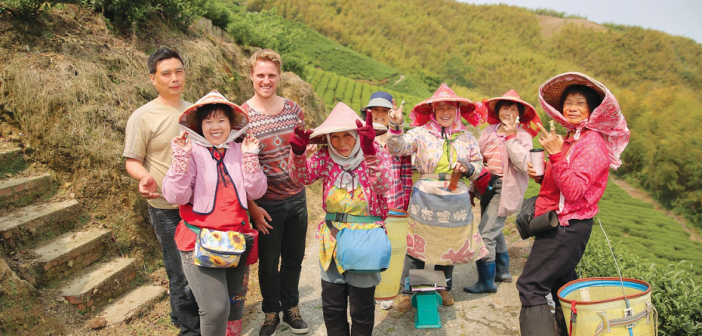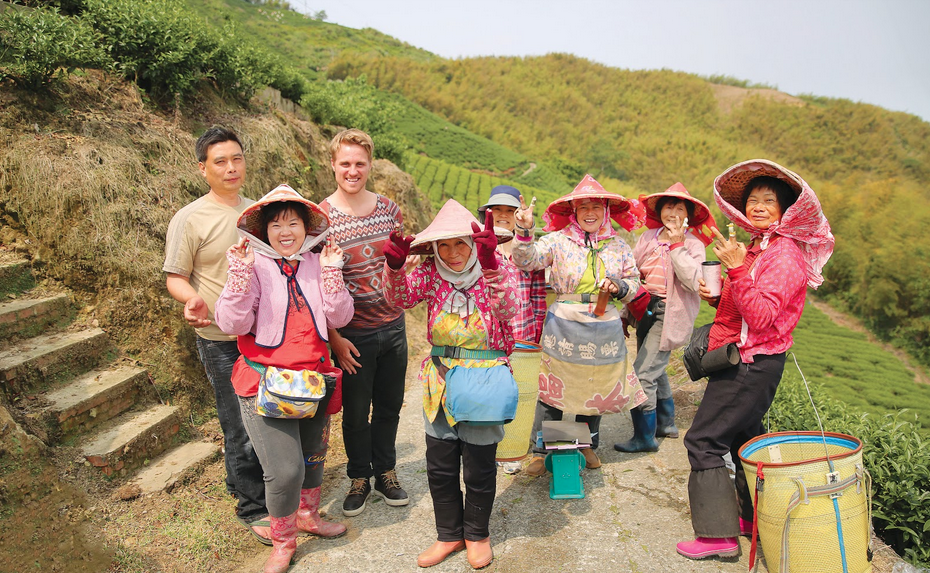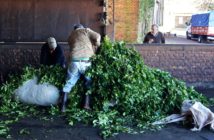After a brief stint as an engineer followed by a career in education and international development, Simon Thomas is now dedicated to making exquisite tea from the east as accessible and readily available as fine wine or single malt whisky. Simon is the cofounder and Creative Director at Dachi Tea Co., a lifestyle brand that’s on a mission to help the world rekindle its relationship with nature and get centered through the ritual of drinking good tea. Read his thoughts below on why direct trade matters in the world of tea.
About 18 months ago from now, I was fortunate enough to take a short leave of absence from my day job so that I could study Chinese and drink excessive amounts of tea in what was then, and is now, my home city – Taipei, Taiwan. At the end of the semester, armed with my intermediate-level Chinese, I figured that I’d hire a motorcycle and set off on an adventure to some of the remotest reaches of the island and get the good stuff just as it was coming down from the hill.
Not only did I find such a tea field, but I got invited in to learn about how the tea was being made, to get wired on the local stimulant, betel nut, and I even got to eat with the laborers and stay in the dormitories overnight with the tea picking ladies.
At 5am the alarm went off and I had a lift up to the fields with them to catch a majestic sunrise. It wasn’t until I got back to the house that I realized I’d forgotten to take my phone (darn, my instagram!). Nevertheless, the memory remained. I returned to the city motivated to turn my passion into my purpose by starting a tea company. No business plan. No market analysis. Just some inspiration and a desire for more experiences like these.
At this point I learned a new Taiwanese idiom, which directly translates ‘If I knew you were coming, I would have worn the traffic lights’, the traffic lights in this case meaning make up.
Right now the debate surrounding direct trade seems to have been defined by the coffee and cocoa beans commodity markets as well as commercial grade tea outside of the orient, and it’s dominated by certification and the sacred relationship between quality and price. Yet there is a dimension to the debate that often gets ignored, and that’s the value of getting your hands on the information that can empower one’s endeavours to educate and entertain their customers in equal measure i.e. to create an authentic experience that centers around a high quality product.
This is why we do direct trade, and these are just some of the evident benefits we’ve observed to date.
Getting an Education – Don’t get me wrong, the traders (ungraciously labelled middle men) who are in some cases master tasters and quality experts in the tea industry, as they are in wine and the like, are extremely skilled. But some of the services they claim to provide are, in my humble opinion that’s informed by my experiences sourcing tea in the orient alone, hyperbole. The real expertise comes from the makers who have immense knowledge that connects them to their natural surroundings. They take mother nature’s produce and vary levels of air, water, sun and fire – all depending on the maker’s judgment depending on the varying of the seasons, the climate that week and the scent of the leaves as each process ends and begins.
When you do direct trade, you get an education straight from the source and it’s like no other since nothing is hoarded. The veil is swept back and the information is no longer used as leverage. Instead it becomes an asset as you endeavour to enhance the experience of drinking good tea.
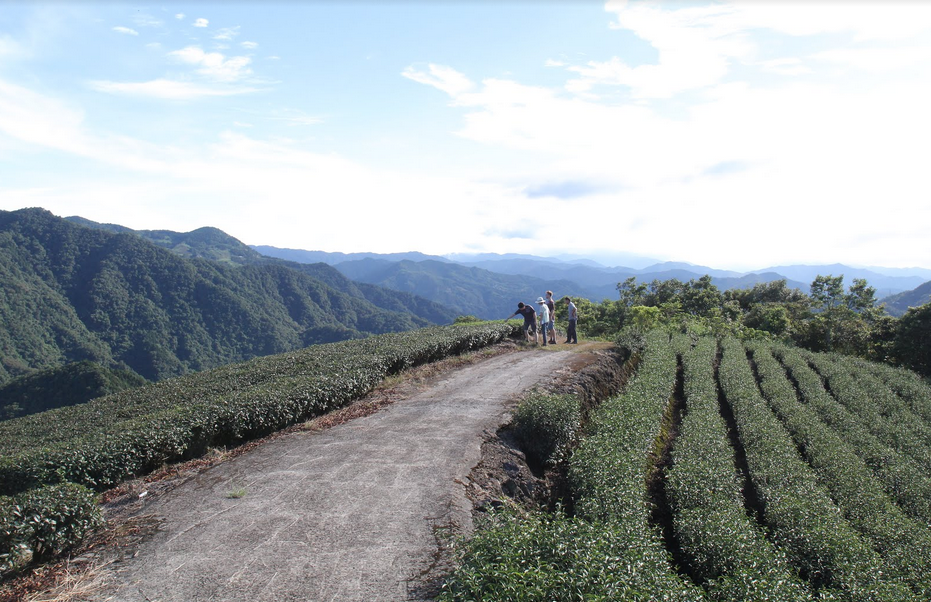 Visiting a tea field, as someone learning about tea, might feel like an indulgent field trip but the information sticks in a way that the most compelling of blog posts could never.
Visiting a tea field, as someone learning about tea, might feel like an indulgent field trip but the information sticks in a way that the most compelling of blog posts could never.
Getting Inspired – It’s a real shame to see tea that has been made to matter be distanced from its origin and become commodified; to see tea that’s made to be exquisite divorced from its maker and lose its authenticity. Conversely, going to the source and and getting acquainted with the landscape and reinstating the human touch unlocks new found levels of appreciation and accents the experience.
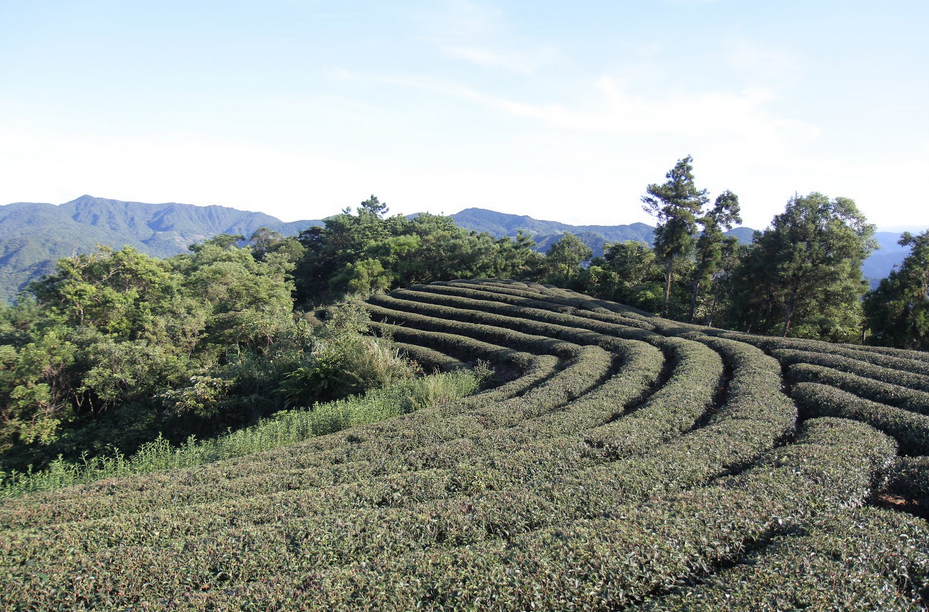 Just 1 hours drive from Taiwan’s capital city, Taipei, these rows of finely pruned bushes in Pinglin produced some of the finest Baozhong (Pouchong) oolong that year.
Just 1 hours drive from Taiwan’s capital city, Taipei, these rows of finely pruned bushes in Pinglin produced some of the finest Baozhong (Pouchong) oolong that year.
Those moments up at the tea field when you project yourself out into a breathtakingly beautiful landscape and receive an affirming response really does bolster your devotion to your mission. In most cases, this inspiration transpires into a passion that can spread like wildfire to your customers, clients and collaborators.
Get Some Peace Of Mind- WYSIWIG, What You See Is What You Get, has long been touted as something that could galvanize the world of premium tea (Hat tip: Derek Chew). It’s no secret that the amount of tea sold under the names of famous mountains substantially outstrips the harvest capacity of that said mountain and we know that origin is of real importance when it comes to artisan tea.
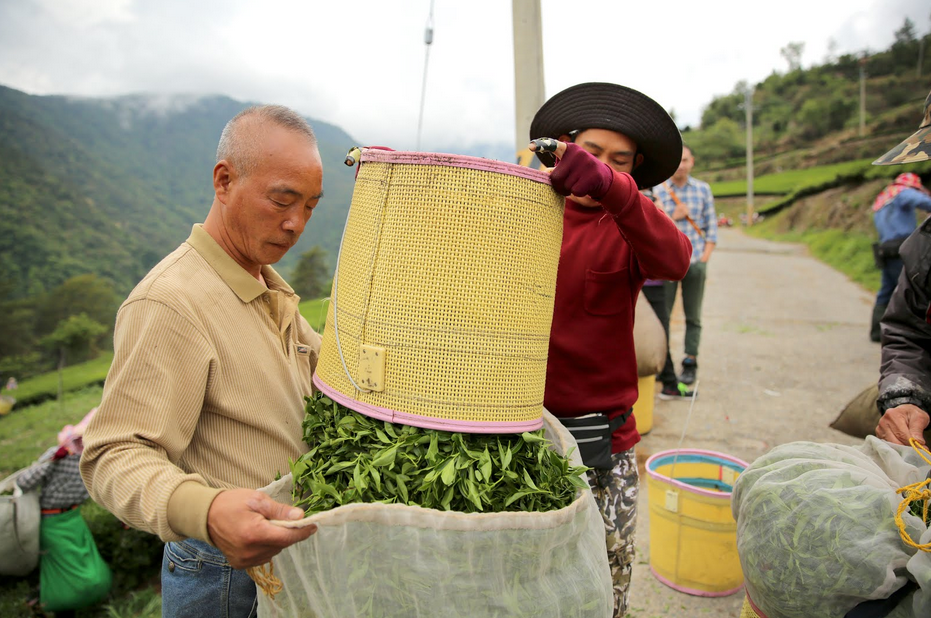 It’s amazing when a maker ‘pops the hood’ for you to see what’s underneath. In just one short conversation, one can discover how many kilos a particular field yields per day and how much the workers get paid per kilo.
It’s amazing when a maker ‘pops the hood’ for you to see what’s underneath. In just one short conversation, one can discover how many kilos a particular field yields per day and how much the workers get paid per kilo.
Tea is extremely difficult to authenticate either empirically using science or by taste, and given that there are a lot of buyers out there unschooled in the trade, there’s a lot of temptation in the hands of those who touch the tea along the supply chain to upgrade it to the next category. An elevation of 3,000ft becomes 4000m and then 5000m by the time it reaches the customer. The old game of ‘Chinese Whisper’ comes to mind.
The less hands the tea goes through, the smaller the chance of the tea’s provenance being modified to suit the agenda of the carrier. Furthermore, when it comes to validating the provenance of your product, we believe there really is no substitute for having visited the landscape and manufacturing plant, tasted the tea maker’s teas from his current and previous flushes, and bonded with the maker. Trust, respect and loyalty are extremely personal things.
From all of the companies we’ve studied, connected with, and sourcing/purchasing managers in the fine foods industry who we’ve been fortunate enough to quiz, quality is at the forefront of all of their commitments and when quality is involved, there seems to be two common themes: having control of your supply chain so that information flows smoothly and quickly from the source to the customer, and treating your producers well.
Quality products are made by resisting the urge to cut corners and thinking about the cumulative benefits over time instead of taking the least path of resistance and getting your product to market today. They all appear to be painfully deliberate when sourcing product, and this requires them to do direct trade.
What’s more, as purveyors of a quality product, there’s an expectation to go above and beyond the physical product itself. Artisan tea is special since each and every tea has a story of terroir and tradition; of cultivar and craftsmanship. There is an additional layer of taste, of sensation, that can only be accessed with a touch of imagination, but first one must feed the imagination the critical components of the story. And what are these? The who and the where; the supplier and the origin.

